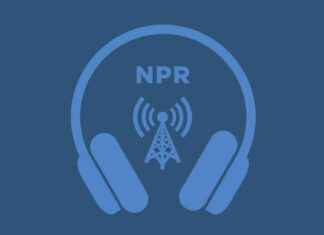Israel Launches Deadly Airstrikes on Lebanon: Death Toll Rises to 182
The conflict between Israel and Hezbollah escalated on Monday as Israeli warplanes launched a barrage of airstrikes on towns and villages in Lebanon. The Israeli military claimed to have targeted over 300 Hezbollah sites, resulting in devastating consequences for the Lebanese population. Lebanese health authorities reported that more than 182 people were killed and at least 720 others were injured, including women, children, and rescue workers.
Israeli leaders declared a “new stage” in their fight against Hezbollah, with the objective of pushing the paramilitary faction away from the border to allow Israeli residents to return to the country’s north. In response to the Israeli airstrikes, Hezbollah retaliated by firing rockets into Israel, reaching as far as Haifa. Hezbollah stated that their targets included military bases and a weapons manufacturing company.
Warnings from the Israeli military were issued to residents across Lebanon through phone calls, SMS messages, and radio broadcasts, advising them to stay away from buildings or areas where Hezbollah was suspected of hiding or deploying weapons. Despite the warnings, Lebanese Minister of Information Ziad Makari dismissed them as part of Israel’s “psychological war.” The Lebanese Health Ministry suspended non-urgent surgeries to accommodate the influx of wounded individuals, while schools in certain regions were ordered to close temporarily.
Amidst the escalating conflict, an exodus began from southern Lebanon as residents sought refuge in the country’s north. Traffic jams were reported on the main coastal highway towards Beirut, with social media flooded by requests for accommodation. The air campaign intensified following a series of attacks on Hezbollah that resulted in casualties and widespread destruction. Israel’s objective was to force Hezbollah to halt its rocket campaign, which had been initiated in solidarity with Palestinians in Gaza.
The ongoing conflict between Israel and Hezbollah has displaced thousands of people on both sides of the border, leaving communities deserted and vulnerable. Israel accuses Hezbollah of using civilian structures to conceal weapons, turning southern Lebanon into a battlefield. The Israeli military issued warnings to residents in specific areas, urging them to evacuate or seek shelter in designated locations to avoid potential harm.
Hezbollah remains steadfast in its commitment to continue fighting until a cease-fire is negotiated in Gaza. Deputy leader Naim Qassem emphasized that the group was prepared for “all military possibilities” in their battle against Israel. The conflict shows no signs of abating, with both sides engaged in a relentless exchange of fire across the Lebanese-Israeli border.
Impact on Civilians
The toll on civilians in Lebanon has been catastrophic, with hundreds dead or wounded as a result of the airstrikes. The indiscriminate targeting of residential areas has left families displaced and communities shattered. The Lebanese government’s efforts to provide medical care and support to those affected have been strained by the scale of the crisis.
Children, in particular, have been caught in the crossfire, facing trauma and loss as their homes are destroyed and lives upended. The psychological impact of living in a war zone is profound, with long-lasting consequences for the mental health and well-being of Lebanon’s youth. The international community must prioritize humanitarian aid and assistance to alleviate the suffering of innocent civilians caught in the conflict.
Regional Implications
The conflict between Israel and Hezbollah has far-reaching implications for the region, with tensions escalating and the risk of broader conflict looming. The involvement of Iran-backed Hezbollah raises concerns about the influence of external actors in the conflict and the potential for further destabilization in the Middle East.
Neighboring countries are closely monitoring the situation, wary of being drawn into the conflict or facing spillover effects from the violence. The risk of escalation is high, with the potential for a wider regional conflict that could have devastating consequences for the entire region. Diplomatic efforts must be intensified to de-escalate the situation and prevent further bloodshed.
International Response
The international community has condemned the violence in Lebanon and called for an immediate cease-fire to protect civilians and prevent further loss of life. Humanitarian organizations are mobilizing to provide aid and assistance to those affected by the conflict, including medical care, shelter, and basic necessities.
Diplomatic efforts are underway to facilitate negotiations and dialogue between Israel and Hezbollah, with the aim of reaching a peaceful resolution to the conflict. The United Nations and other international bodies are actively engaged in mediating the crisis and urging all parties to prioritize the protection of civilians and respect for international law.
In conclusion, the escalating conflict between Israel and Hezbollah in Lebanon has resulted in a tragic loss of life and widespread destruction. The international community must act swiftly to de-escalate the situation, protect civilians, and work towards a peaceful resolution to the conflict. The people of Lebanon deserve peace and security, free from the specter of violence and conflict.



























